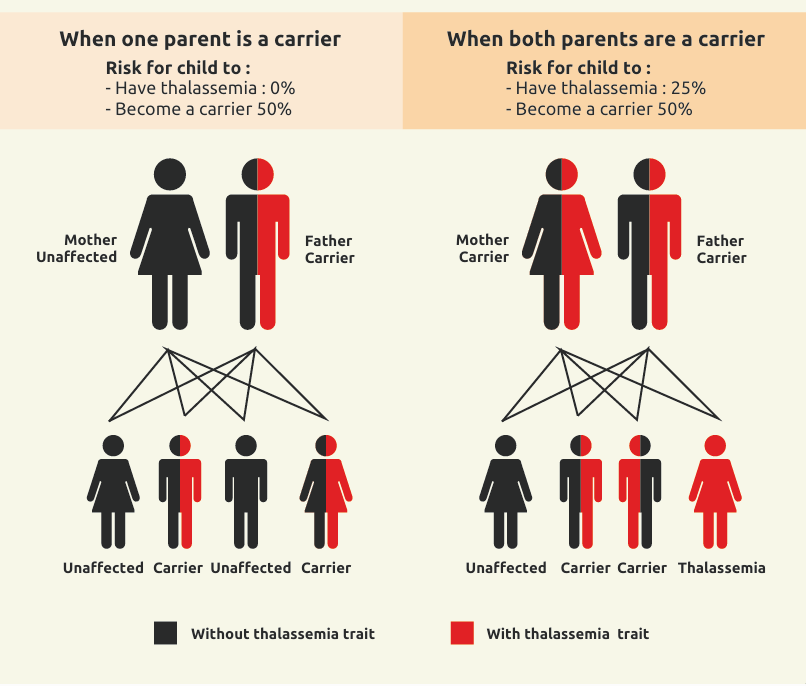Thalassemia is a genetic blood disorder that causes haemoglobin deficiency and severe anemia, starving organs of oxygen, which inhibits their ability to function properly.
There are two types of thalassemia. They are thalassemia minor and thalassemia major.
If you and your partner both have thalassemia trait , for each pregnancy , there is a :

thalassemia
Family Planning
Yes , during pregnancy detection of fetus for Beta - Thalassemia is possible by chorionic villus sampling or amniotic fluid DNA study. This can be done at 10 wks. or 14 wks. of pregnancy respectively.
if you have not been tested or are unsure of your thalassemia status, it is best to get tested ! testing is easy and virtually painless and it is done routinely at our SAAVI Women’s Hospital.
Let’s know our thalassemia status & be a part of thalassemia ( Major ) free society drive.
At SAAVI we strive for good health of mother & baby, As a part of it. Let’s discuss an important blood disorder ( Thalassemia ).